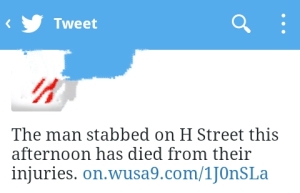The death of copy editing?
Yesterday, Bill Walsh, a copy editor for the Washington Post and author of three books on language, died. He was far too young–only 55–and a victim of cancer. He was liked and respected by his colleagues, copy editors everywhere, and by people who appreciate clean, readable copy (myself included). His obituary in the Post is a worthwhile read.
A couple of years ago, I had the good fortune to attend a copy editing workshop that Mr. Walsh was leading. He talked about his pet peeves (“armed gunmen” for example) and talked extensively about comma and hyphen use, among other topics. After the session, somebody asked him why there were so many copy errors in the Washington Post. He lamented that the shear quantity of copy (all that digital stuff) made it impossible to keep up. And of course, his department had suffered cuts.
More and more, news outlets have fewer copy editors or even none at all. Writers/reporters are expected to edit their own work, which, as anybody who has written anything, is damn near impossible to do successfully.
Copy editing is not proofreading. Proofreading is about making sure that words are spelled correctly and/or are in the right place. Copy editing is far more than that. Copy editing is about making sure that the work makes sense and that it is accurate. It strives to improve readability and accessibility.
Bill Walsh was a celebrity copy editor (he had a following!). His insight and wit are irreplaceable. I hope that his main skill–copy editing–does not die along with him. He certainly transmitted his knowledge through his books and his workshops. But he couldn’t stop the powers that be from making cuts to copy editing staff.
Without copy editors, readers are shortchanged with text that can be mistake-ridden and inaccurate. Copy editors are valuable and perform necessary work inside news organizations and indeed, any organization that puts out “content.”
Rest in peace, Bill Walsh. You and your skills will be be sorely missed.
P.S. I don’t have a copy editor, so any mistakes (and I am sure there are a few) are mine and mine alone.
